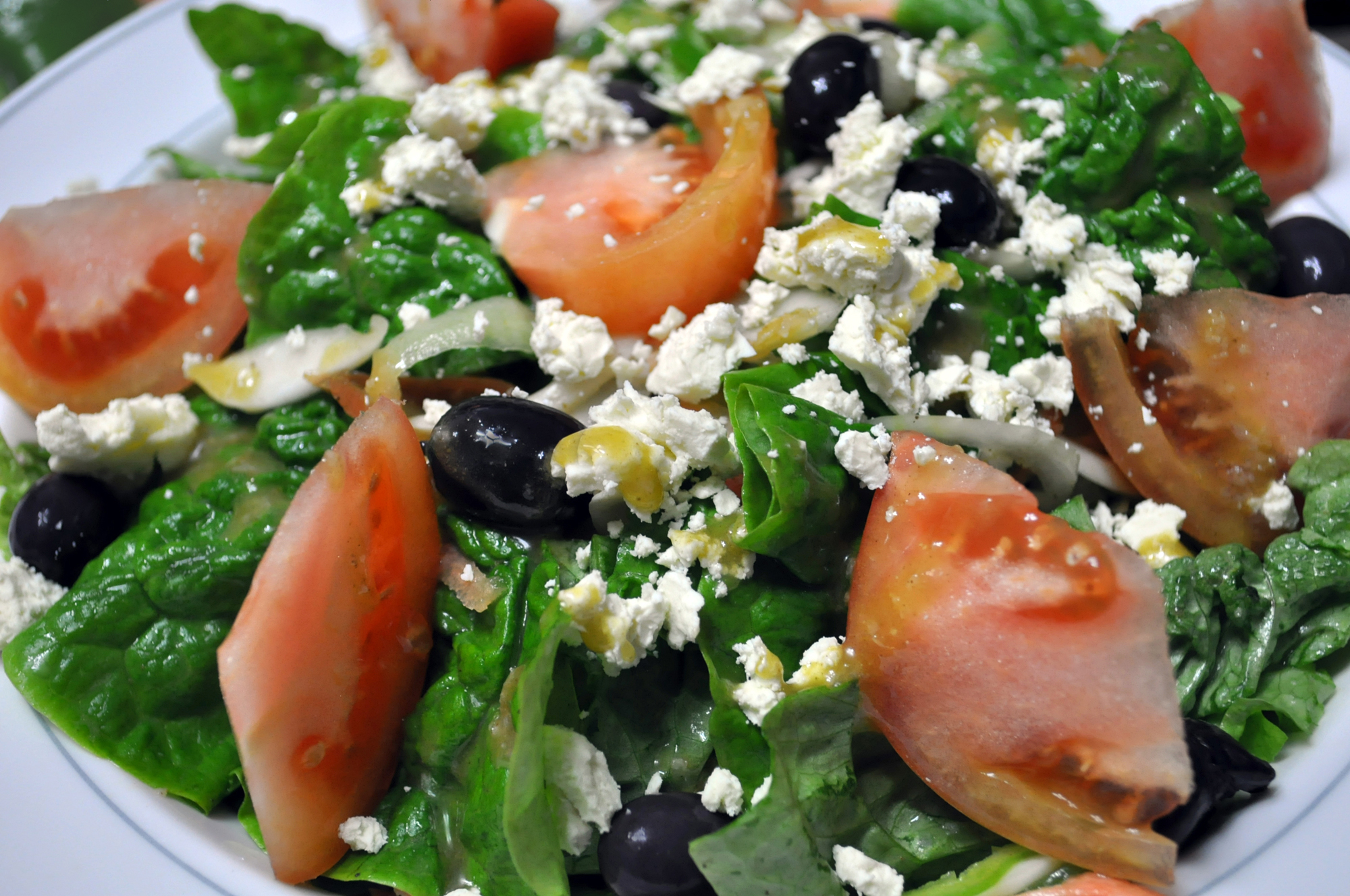Traditional Greek cuisine

Modern-day Greece has the distinct honor of tracing its roots to the civilization of ancient Greece, generally seen as being the cradle of Western civilization thanks to it being the birthplace of “minor” things like democracy, Western philosophy, literature, political sciences, Western drama – both tragedies and comedies, just to name a few. However today we won’t be talking about any of those, instead we’ll be focusing on traditional Greek cuisine.
All throughout its history, the country has had extremely strong links with all the surrounding cultures, whether through conquest or simply trade relations, but definitely shows in its cuisine.
Traditional Greek food shares many characteristics with the cuisines of Italy, Turkey, the Levant and many countries in the Balkans however the features most commonly associated with contemporary Greek cuisine revolve around the wide use of olive oil, vegetables, herbs, bread and yogurt. Obviously there are more others, such as the wide use of wine, fish and various meats, but the previously mentioned ones are those that usually come into mind when one thinks of Greek cuisine, so let’s look into them a bit in detail.
Olives
These wonderful fruit have been a staple of the Greek diet since ancient times, when the inhabitants of the peninsula ate the ripe black olives believing that they were good for your health. Well modern nutritional science has proved many times over that olives and olive oil are indeed healthy and good for one’s health, so they had it right from then. Something else that they had right in regards to olives is preserving them, namely in vinegar and seasoning them with fennel is something that has also withstood the test of time, this being the favored way of preserving them even today.
Some may think that there are several types of olives but the truth is that they’re more or less the same thing, it only depends when they are picked. Green olives are unripe, while the black ones are. Between the green and black there are many other varieties which usually bare the name of the area that they come from, arguably the most well-known being those from the Kalamata area.
Olive Oil
There’s simply no contestant for Greek olive oil. It’s true that the Italians are some good producers of olive oil as well but it is also a known fact that they used to purchase huge quantities of Greek olive oil and label it as their own to export it.
There are of course quite a few other countries that produce good olive oil, but the Greeks have been doing it for so long at such a large scale, that it’s hard to argue that theirs isn’t the best. As bit of a note as to the consumption of olive oil, Greeks consume more olive oil per capita than any other country in the world.
The olives meant for pressing are picked in late November, and taken to the village cooperative or the local private owned pressing plant. There are still places around the country that still extracts the oil in the traditional manner, how it’s been done for thousands of years, by using a large wood and stone press. However in most places the oil is extracted by using modern means.
Bread
The busiest place in any Greek village, aside from the local square possibly, will be the local bakery. Bread is a staple food of the Greeks, being eaten with every meal, usually being used to gather up remaining sauces and olive oil after the food is eaten. Usually village bakeries will still make bread from old recipes that have been passed down through generations, some of these bakeries still use wood burning stoves, there’s nothing like a piece of fresh, hot bread straight from a baker’s stove. Bread is important to many facets of Greek life, there are many types of breads corresponding to specific days, for instance there is a type of bread meant to be eaten on the first day of the 40 days of fasting before Easter. Bread also plays an important role in religious services.

















